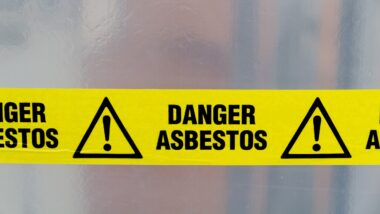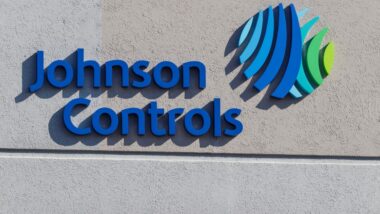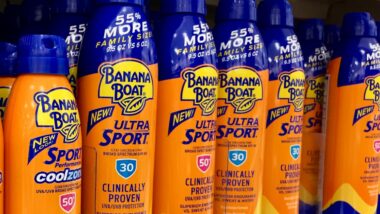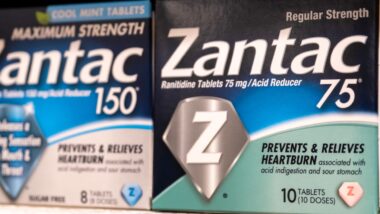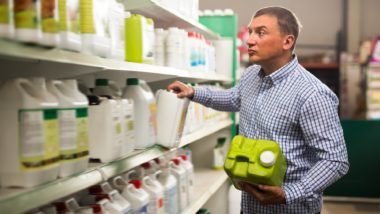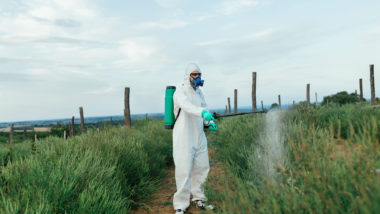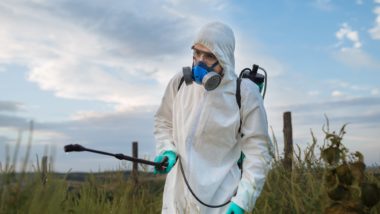Top Class Actions’s website and social media posts use affiliate links. If you make a purchase using such links, we may receive a commission, but it will not result in any additional charges to you. Please review our Affiliate Link Disclosure for more information.

Glyphosate and Surfactants
The chemicals in Roundup and other GBFs that were studied are known as surfactants, which help plants to absorb glyphosate. Scientists also looked at other herbicidal chemicals, which are not added to all GBFs. Studies of GBFs began soon after the International Agency for Research on Cancer added glyphosate to its list of probable human carcinogens.
That finding has been controversial since it was announced. Glyphosate was first developed in the 1970s. Since that time, GBFs, particularly Roundup, have become the most common herbicides used by commercial farmers, who make up the vast majority of glyphosate users.
Three juries have determined that glyphosate was the reason plaintiffs developed non-Hodgkin lymphoma, a type of cancer affecting the lymphatic system. Bayer continues to insist that glyphosate is not a carcinogen, citing scientific studies that later turned out to be funded by Monsanto, calling their credibility into question.
While a great deal of controversy remains over whether or not glyphosate causes cancer, researchers have found that it acts as an endocrine disruptor, killing off hormone-producing cells and interfering with hormone function. Significantly, the 2015 study found that Roundup was more toxic than glyphosate alone, indicating that glyphosate may interact with other ingredients.
What are the Other Chemicals in Roundup?
Scientists in the recent study were not able to examine the surfactants contained in the products, since such ingredients are considered proprietary, and the manufacturers are not obligated to list or disclose them. Generally, surfactants are listed on product labels as “other ingredients.” One of the most common surfactants is soap, which contains fatty acids. Other surfactants include lecithin, sodium lauryl sulfate (a foaming agent), ammonium quats (used as a disinfectant) and lignin sulfonates (a byproduct of wood pulp production). Polyethoxylated tallow amine (POEA) was one of the chemicals in Roundup that for several years was used as a surfactant. This substance, derived from animal fat, is highly toxic to fish and other aquatic organisms and was banned by the European Union in 2016.
Other herbicidal chemicals in GBFs include diquat dibromide (also a drying agent), mesotrione and metolachlor. In a summary of the study, researchers wrote, “These results suggest that while glyphosate alone lacks genotoxic activity, the genotoxicity of GBFs may require further evaluation.”
Did Monsanto Know?
It is not known with any certainty that Monsanto was aware of the potential toxicity of added chemicals in Roundup. However, internal emails that have come to light in recent litigation suggest that they knew something. Among other things, these communications indicated that Monsanto did not test its product for carcinogenicity. One email, dated 2002, claimed that glyphosate was “OK,” but acknowledged that “the formulated product does the damage.”
If you or a loved one developed cancer after using Roundup as a farm worker or home gardener, you may have a legal claim. Legal migrant farm workers may also seek help. Learn more by filling out the form on this page for a FREE case evaluation.
ATTORNEY ADVERTISING
Top Class Actions is a Proud Member of the American Bar Association
LEGAL INFORMATION IS NOT LEGAL ADVICE
Top Class Actions Legal Statement
©2008 – 2024 Top Class Actions® LLC
Various Trademarks held by their respective owners
This website is not intended for viewing or usage by European Union citizens.
Get Help – It’s Free
Join a Free Roundup Cancer Class Action Lawsuit Investigation
For the most up-to-date information on this case, click here.

